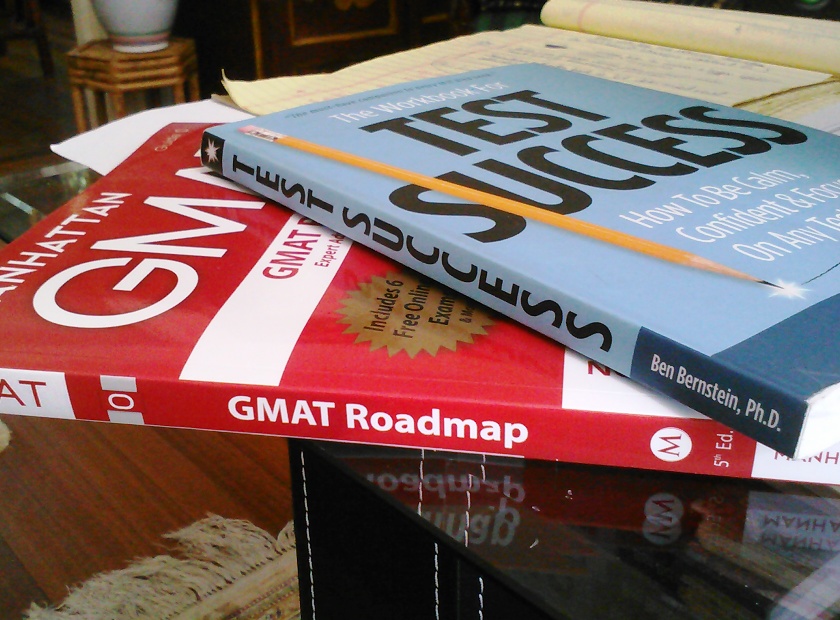More on MBA Recommendation Letters
I’ve got a post I refer to everyone called “Wrangling Recommendations,” which is a best-of-the web on MBA recommendations.
Soojin Kwon Koh, Director of Admissions at University of Michigan’s Ross School of Business, wrote a blog post that I found very helpful back in 2012. With the ever-changing Internet, this excellent post vanished when Ross refreshed its MBA website.
I wanted to reprint it because it was so good, so here goes:
Be smart about choosing your recommenders
What does this advice mean?
Recommendation letters provide the admissions committee with a valuable perspective on your professional accomplishments, strengths and weaknesses, personal characteristics, and potential fit with our community. Our questions are straightforward in their attempt to gather this information. We won’t be evaluating your recommenders’ writing skills. We will be looking for content that helps us understand who you are as a professional and the role and impact you had within your organization.
The key to submitting a solid recommendation lies in whom you select as the recommender. You should pick someone who knows you well, values your work, is committed to your success, and is willing to take the time to write a detailed recommendation that is supported by examples. You may be surprised to know that we occasionally see recommendation letters that are not supportive. This reflects poorly on the applicant, as it shows a lack of self-awareness of how he/she is viewed by others, as well as poor judgment in selecting recommenders.
Here are some guidelines for choosing the right recommenders and helping to ensure they provide quality input to the admissions committee’s evaluation of your application:
1. Choose substance over title: In other words, don’t ask your CEO. Unless you have worked directly with a CEO for a significant amount of time, he/she probably will not know you well nor have the time to write a substantive letter. Instead, focus on finding someone who knows you and your professional strengths and weaknesses. The admissions committee would rather receive a recommendation letter from a mid-level manager that has depth, substance, and supportive examples than a generic recommendation from someone higher up in your organization.
2.
3. Make it easy for your recommenders: Set up a time to meet with your recommenders to give them context on why you want an MBA. Remind them of the projects you worked on together and the relevant project details. Provide a copy of a recent performance review. While the letter must be written in each recommender’s own words, those words will come easier once you’ve provided context and reference information. But don’t prepare your recommenders so extensively that their letters repeat what you’ve discussed in your essays. You also want to ensure that the two recommendation letters don’t sound virtually identical; this would make us question the authorship of the letter.
4. Provide ample lead time: Remember that all parts of your application must be submitted by the application deadline, including the recommendation letters. Since it is more difficult to control the timeline of a third party, give your recommenders plenty of lead time. In fact, ask now if you haven’t asked already. It can be helpful to build in a buffer for yourself by providing them with a deadline well in advance of the actual application deadline. At a minimum, request the letter four weeks prior to the application deadline. You don’t want your recommenders to have only enough time to give one sentence answers to each question (which happens).
Keep the big picture in mind.
Recommendation letters only are one piece of your application. Ultimately, you cannot control what your recommenders write, and the admissions committee recognizes that fact. However, you do control the choice of recommenders and how well you prepare them to write your recommendation. Picking the right people and making the process easy for them will help maximize your chances for success.
This was written by Julia Campbell, Assistant Director of Admissions at the University of Texas’ full-time MBA program
Letters of Recommendation: How to Leverage the “Third” Person
If you’re like me, asking your supervisor or your colleague to write a letter detailing your virtues makes you feel incredibly uncomfortable. “So, tell me again how I’m amazing? And don’t spare any details!” But a glowing letter of recommendation for your MBA Admissions application is oh-so critical. Here’s how you can leverage your personal testimonials.
Sure, you’ve worked hard over the past few years and have earned a good praising, but why must you have to ask for it, and in writing? Well, the answer is easy: as an Admissions Officer, I need perspective on your business acumen, your personality, and your leadership and teamwork skills to confirm your claims of awesome-ness from someone other than yourself. Think about it, you have complete control over every aspect of your MBA Application, except for the letters of recommendation. You’ve already written essays, submitted a resume, took your tests, submitted your transcripts and you may have also been interviewed. Now it’s time for a third party to weigh in and offer us a new perspective that will hopefully add depth and value to your overall application, but most importantly a good recommendation will provide a CREDIBLE corroboration of your positive attributes.
WHO’S THE BOSS?
The best letter of recommendation will come from a Direct Supervisor or equivalent. Nobody knows your capabilities in the business world better than the person supervising you in your current role. This person should have some sort of oversight or supervisory involvement in the work that you do. Even better if they write your performance evaluations! This means they are used to thinking about you and your skill set. This person should be able to come up with clear examples of these skills, so therefore first-hand knowledge of your measurable success is also crucial.
There are of course some exceptions when asking your Direct Supervisor isn’t the best bet. Perhaps you’re new to the position or your Supervisor may be new to the organization or role. This could be bad news if you or they haven’t been in the role long enough to speak intelligently about your skill set and abilities. Sometimes, it’s conflict of interest that prevents you from asking your Direct Supervisor for a recommendation letter. For example, if your Supervisor is also your mother in the case of a family business. (See next section for advice on who to ask instead.)
Lastly, there may be another situation that complicates you asking your Supervisor; they could be opposed to you leaving your position for an MBA (if you’re applying to our full-time program), or in rare situations, you may not have a healthy relationship with your supervisor or you may feel that asking them for a recommendation to business school would jeopardize your opportunity for promotion or a raise.
All of these are valid circumstances you may want to include in the Optional Essay, to give us context and reasons for why you didn’t ask your Direct Supervisor.
WHEN IT’S NOT EXACTLY CLEAR
Other good letter of recommendation options would be a former Supervisor at a previous job, a Project Manager, or a professional colleague. You may also consider a business client, lawyer, accountant, industry mentor or other peer professional if you’re in a family business setting or in a consulting or advertising role. Remember that whoever you choose needs to be able to discuss with us in detail your qualities, skills, and virtues. Also, don’t just pick the CEO or President of the company. Just because they know your name and you have shared an elevator ride with them doesn’t mean they know you well enough to recommend you for b-school. We’ve read enough letters of recommendation to know when somebody knows of you, and when they know you.
GET ON THEIR CALENDAR
Make sure to let your recommenders know way in advance you are going to request their help. I would even suggest letting them know a good three months ahead of time if possible, so that you are not rushing them if they haven’t completed it a month out, and you start getting concerned they won’t submit the letter on time. It is also a good idea to meet with them, let them know what your short and long-term goals are and why McCombs is the best school for you, and offer them a copy of your updated resume. That way they can talk about their belief in your direction and goals with some background.
LAST & MOST OBVIOUS TIP
Most importantly, make sure to ask someone who actually likes you. Sounds obvious, but you would be surprised how many candidates have letters of recommendation submitted by people who write just a few words (“She’s really great.”), come up with poor examples (“One time we had a problem with a client, and she handled it well.”, or clearly just don’t think that highly of you (“She performs equally well when compared to her peers at a similar level.” Yikes. You might as well have asked a perfect stranger to write it and it probably would have come out better.
Good luck in selecting your recommenders! We look forward to reading these glowing professional love letters soon.





